 Title: Lives of Girls and Women
Title: Lives of Girls and WomenAuthor: Alice Munro
ISBN: 978-0375707490
Pages: 288
Release Date: February 13, 2001
Publisher: Vintage
Genre: Contemporary Fiction
Rating: 4.5 out of 5
Book Summary: Lives of Girls and Women is an insightful, honest book, "autobiographical in form but not in fact," that chronicles a young girl's growing up in rural Ontario in the 1940's.
Del Jordan lives out at the end of the Flats Road on her father's fox farm, where her most frequent companions are an eccentric bachelor family friend and her rough younger brother. When she begins spending more time in town, she is surrounded by women-her mother, an agnostic, opinionated woman who sells encyclopedias to local farmers; her mother's boarder, the lusty Fern Dougherty; and her best friend, Naomi, with whom she shares the frustrations and unbridled glee of adolescence.
Through these unwitting mentors and in her own encounters with sex, birth, and death, Del explores the dark and bright sides of womanhood. All along she remains a wise, witty observer and recorder of truths in small-town life. The result is a powerful, moving, and humorous demonstration of Alice Munro's unparalleled awareness of the lives of girls and women.
My Thoughts: I have read some of Alice Munro's short stories, which are beautifully written, brilliant and intense but often funny, as well. I always wanted to read her only novel, Lives of Girls and Women and, finally, I did. I'm only sorry I waited so long. In some ways this book isn't that different from her short stories in that the chapters, which chronicle the various experiences of a young girl, Del Jordan, growing up in the 1940's, in Jubilee, Ontario, are not unlike short stories, their unifying theme being Del trying to figure who she is and what she wants to be as she grows into a young woman. There are seven chapters, each chronicling a year in Del's life. Munro's writing is gorgeous, captivating and brings Jubilee and its people to life. Munro has titled each chapter with an intriguing, sometimes funny, occasionally cryptic title, such as "Heirs of the Living Body" and "Age of Faith" each relating to that chapter's contents.
Del is smart, observant and a bit of a misfit from a young age. She lives with her parents and her brother Owen at the end of Flats Road on the outskirts of the town of Jubilee. Her mother detests living on Flats Road and eventually moves into Jubilee, only to discover it doesn't suit her either. Del, as a child, is aware her mother doesn't fit in with the people of Jubilee and she doesn't want to. Del's mother is intelligent, creative and ambitious woman who believes in ideas and education. She can also be out-spoken and off-putting. Del's Aunt Elspeth and Auntie Grace, her father's sisters, mock and criticize her mother in front of Del. Del doesn't always understand what they're saying but she gets the gist of what they're saying. Del knows her mother believes she's better than them and Del's aunts disdain her mother for it. Del fears being made fun of and being disliked like her mother. She wants to fit in with the people in this town. She wants her aunts to continue to like her and invite her to visit. Del doesn't want to be like her mother
" 'Is your mother going on the road much these days?' they would ask me, and I would say no, oh no, she isn't going out much anymore, but I knew they knew I lied. "Not much time for ironing," they might continue compassionately, examining the sleeve of my blouse. "Not much time for ironing when she has to go out on the road." I felt the weight of my mother's eccentricities, of something absurd and embarrassing about her - the aunts would just show me a little at a time - land on my own coward's shoulders. I did want to repudiate her, crawl into favor, orphaned, abandoned in my wrinkled sleeves. At the same time I wanted to shield her. She would never have understood how she needed shielding from twoold ladies with their mild bewildering humor, their tender proprieties. "
Del struggles with anger towards her mother, partly fueled by fear she will become just like her. In some respects she already is: Del is intelligent and quick-witted and a prolific reader of a variety of books. Del struggles not to be eccentric and smart like her mother for a while. Then she decides to rebel in the typical fashion of young girls by doing exactly what her mother hopes she won't . While trying to figure out who she is, Del relishes shocking and disappointing her mother. Del's mother intensely disdains religion (her own mother was very religious). There are four churches in Jubilee . Del's parents belong to the United Church of Jubilee and Del and Owen were baptized but her parents rarely attend. Del begins attending the United Church when at age eleven to annoy her mother as well as hoping to make herself more interesting. By the time she's twelve, Del has questions about God and is looking for answers. She ends up spending more time in Jubilee's churches than even she intended.
Del, as well as her mother, are the main characters in Lives of Girls and Women. Munro also fills her book with a myriad of quirky, eccentric characters who come in and out of Del's life as she grows up. Her best friend, Naomi, who's mother is a nurse and shares entirely too much of her job with her daughter, according to Del's mother, is an example of the kind of girl found in Jubilee. Naomi doesn't dream of a career or a life beyond Jubilee. She expects to get a job, marry, settle down and have a family. Del's mother worries Naomi will be a negative influence on Del by encouraging Del to follow this same path. Del's mother expects Del to break free of the boundaries of a town like Jubilee and make something of her life, like her mother wishes she herself had done. You can imagine, then that her concern about Naomi is nothing compared to her worry over Del's Baptist boyfriend, Garnet!
Munro makes even the most minor character come alive with a few words or a brief description. Some of the characters are sweet and sad such as Miss Ferris, one of Del's teachers, some are more like the menacing Dale, a slimy, lecherous boyfriend of her mother's boarder, Fern and many, such as Del's Aunt Elspeth and Auntie Grace will make you cringe at their caustic remarks but also laugh. Munro enables us to feel something for each of her characters, be it pity, disdain, joy or contentment and we recognize them in people from our daily lives and so can identify with them. The people of Jubilee are colorful and fascinating. They add a depth and richness to this story that, along with Munro's vivid descriptions of Jubilee, Flats Road and the surrounding country, provide us a life-like picture of Del, her family and friends and the place where she grows up.
I've provided some additional examples of Munro's breath-taking and compelling writing. Ordinary, simple situations become remarkable and surprising when she applies her considerable talent and wit to the occurrence. Scenes don't always follow the predictable path we're used to and often the conclusion of an incident is not as expected. Munro was obviously aware of the breadth and variety of human behavior and actions. When young Del bites the arm of her cousin after the girls harasses Del at her uncle's funeral we learn why:
" When I bit Mary Agnes I thought I was biting myself off from everything. I thought I was putting myself outside, where no punishment would ever be enough, where nobody would dare ask me to look at a dead man, or anything else, again. I thought they would all hate me, and hate seemed to be so much to be coveted then, like a gift of wings. "
" When I was younger, out at the end of the Flats Road, I would watch her walk across the yard to empty the dishwater, carrying the dishpan high, like a priestess, walking in an unhurried, stately way and flinging the dishwater with a grand gesture over the fence. Then I had supposed her powerful, a ruler, also content. She had power still ,but not so much as perhaps she thought. And she was in now way content. Not a priestess. She had a loudly growling stomach, whose messages she laughed at or ignored but which embarrassed me, unbearably. Her hair grew out in little wild gray-brown tufts and thickets; every permanent she got turned to frizz. Had all her stories, after all, to end up with just her, the way she was now, just my mother in Jubilee? "
I can't recommend this book enough. I loved it. It's not a quick read and it may take a little time to get into it but a few pages of Munro's writing about Del and I had difficulty putting this book down. I reread many different passages as the book progressed, comparing the things Dell thought about her mother or to remind myself of something from earlier in the store when Del was younger. Reading Alice Munro is a rewarding, worthwhile endeavor. I'm already looking forward to my next book of her short stories. I only wish she's written more than just one novel. I hope you read Lives of Girls and Women. If you do, let me know your thoughts!






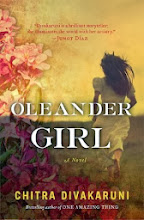
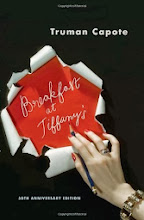





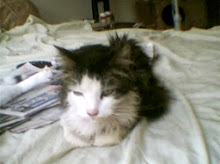
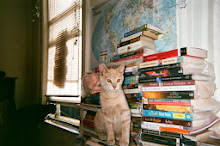


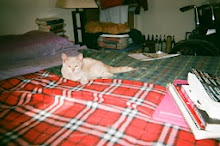
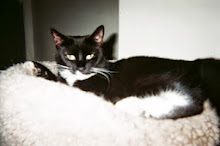
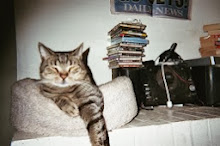
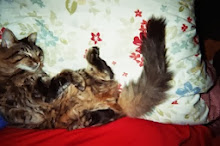

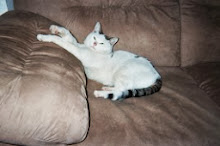
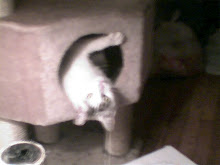
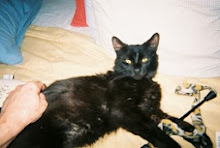
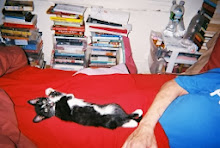

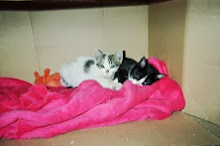



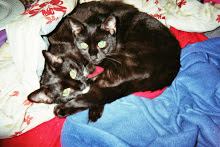


This sounds fascinating. Is it based on Munro's life? I've never read her work and would like to give it a try.
ReplyDeleteHmm... the comment I wrote got deleted.
ReplyDeleteI love Munro - one can always empathise with her characters. I've been meaning to read all her collections, and have Too Much Happiness next on the cards. Would love to read this after.
I mentioned your blog in my latest post! Check it out http://ashleyfictionista.blogspot.com/2011/06/awarded.html
ReplyDeleteI had no idea Munro wrote a novel! Will keep an eye out for this one. You've been adding to my tbr list quite a bit lately, Amy.
ReplyDeleteThis sounds rather interesting! I have heard Munro's name bandied about frequently, but have never read any of her books, and I am not sure why. It sounds like this book deals with womanhood from several different angles and perspectives, and it sounds like a book that I would probably enjoy very much. I liked your erudite and thoughtful review on this book, and will be adding it to my wish list for sure. Thanks for sharing your thoughts on it with us!
ReplyDeleteWell, you've convinced me! Adding it to my to read (some day) list.
ReplyDelete